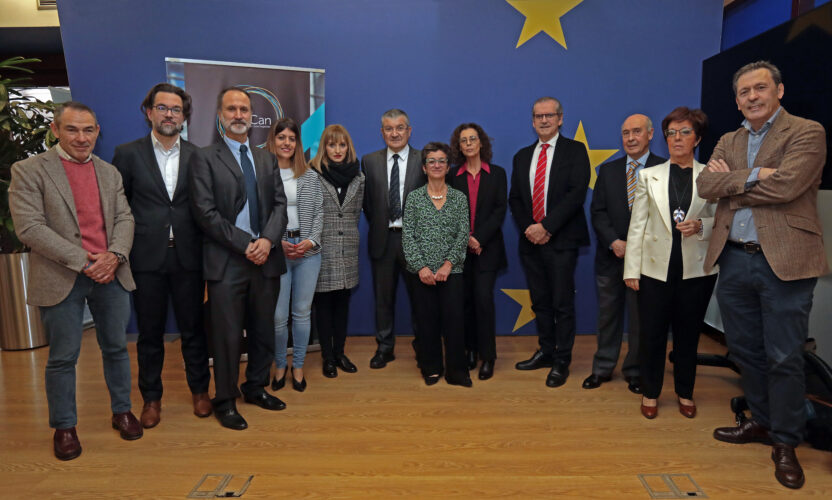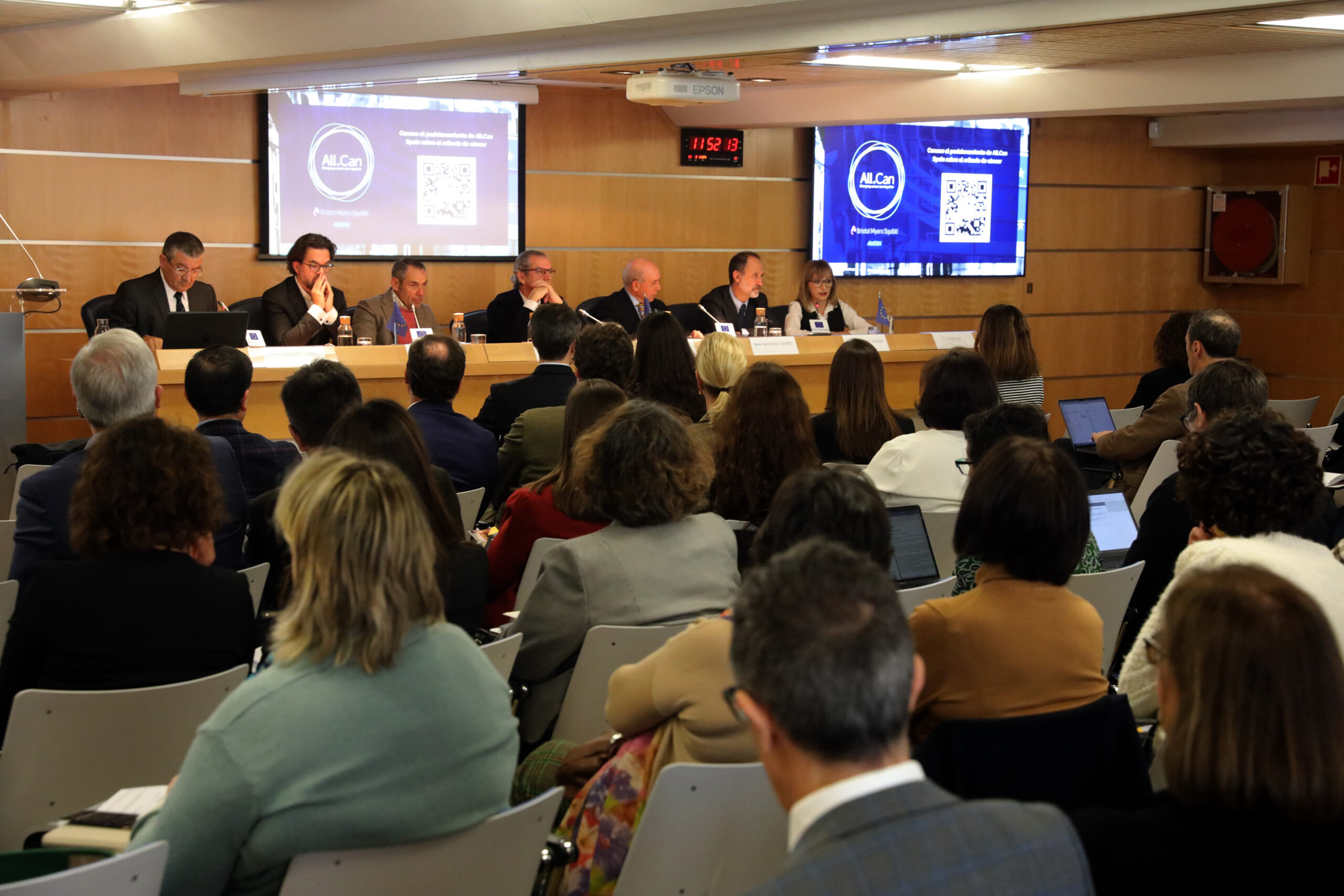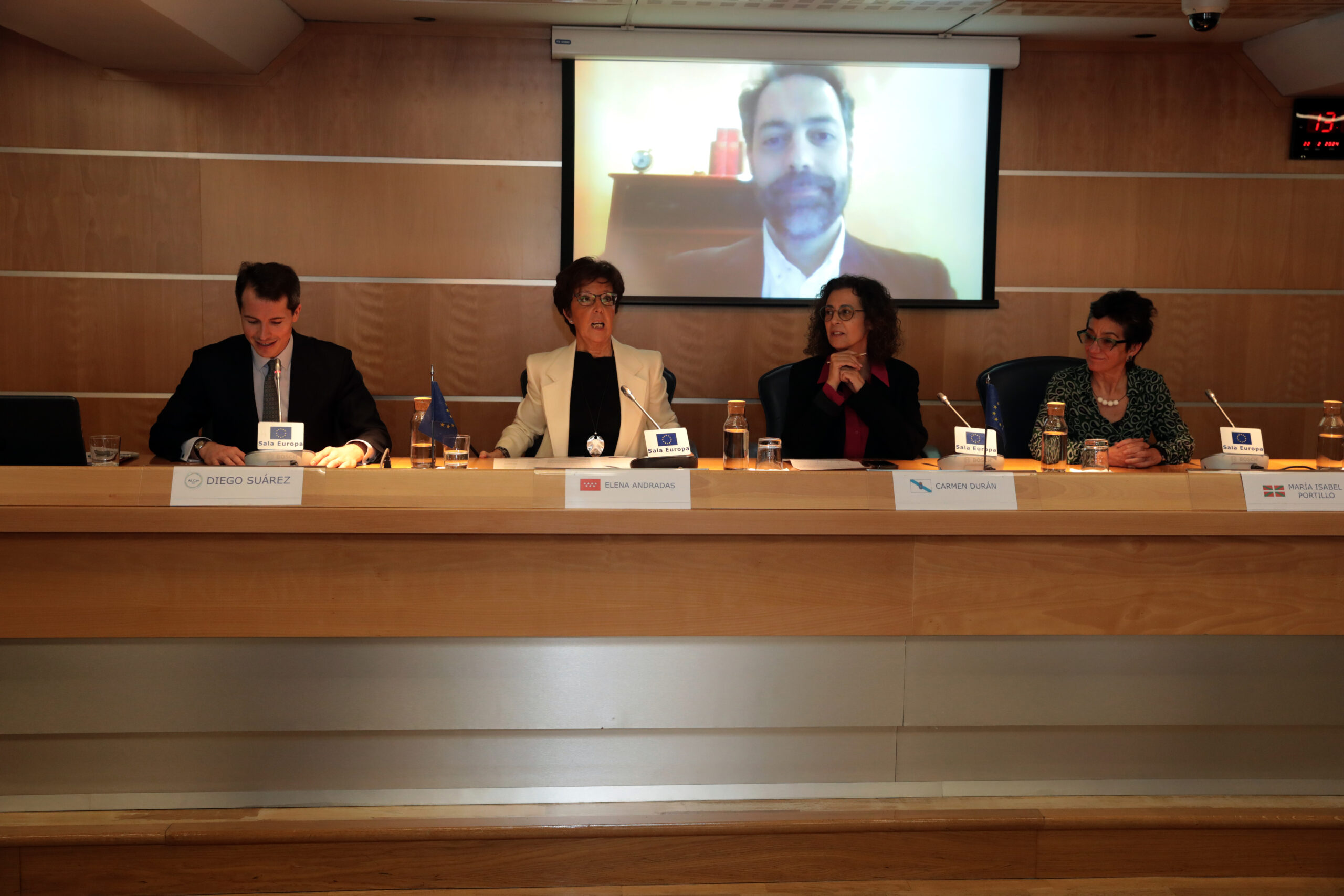
Yesterday, the summit “New Horizons in Cancer Screening in Europe: Implications for Implementation in the NHS” was held at the representation of the European Commission in Spain, in collaboration with EFPIA and Astellas Spain.
The main objective was to create a forum for discussion to exchange information and experiences regarding cancer screenings in Spain. To achieve this, the summit featured two roundtable discussions: one technical and one political.
At the outset of the event, All.Can Spain unveiled the ten principles established by its Scientific Committee concerning cancer screening programs in Spain (link to All.Can Spain positioning on cancer screening)These principles were crafted following a meeting with Ms. Isabel Mosquera-Metcalfe, a researcher in the Division of Early Detection, Prevention, and Infections at the International Agency for Research on Cancer (IARC) of the World Health Organization.
Then, in the first technical roundtable discussion, prominent scientific societies and patient associations related to the new types of cancer mentioned in the Recommendation participated and shared their valuable technical knowledge and personal experiences regarding the effects of lung, prostate, and gastric cancer, emphasizing the importance of early detection programs to improve diagnoses.
Subsequently, the second round table brought together the top representatives of the leading autonomous regions in screening programmes, such as:
- Representing the region of Andalusia, Jorge del Diego, Director General of Public Health and Pharmaceutical Organisation.
- Representing the region of Madrid, Ms. Elena Andradas, Director General of Public Health.
- Representing the region of Galicia, Ms. Carmen Durán, Director General of Public Health of the Xunta de Galicia.
- Representing the Basque Country/Euskadi region, María Isabel Portillo, Coordinator of Colorectal and Prenatal Cancer Screening of the Basque Health Service – Osakidetza.
The representatives of the Autonomous Regions highlighted the latest advances in screening programmes in their respective Autonomous Regions, the importance of pilot projects and the need to share good practices between territories, without forgetting the challenges pending and the new recommendations on breast, cervical and colorectal screening.
Finally, the summit was concluded by Ms. Estefanía García Comiño, Deputy Director of Health Promotion at the Ministry of Health, who emphasized the importance of expanding screening programs in service portfolios with the highest quality standards. In this regard, she announced the launch of the Information Systems working group, which will define quality indicators to assess each of the programs. She also highlighted the need for collaboration among all involved parties, including patient associations, scientific societies, professionals, administration, and public decision-makers, to achieve success in screening programs.

